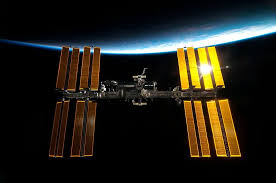Shubham Shukla: India’s Star Astronaut Joins Axiom-4 in a Historic Leap for Space Exploration
India marked a historic milestone in global space exploration on June 26, 2025, as Indian Air Force Group Captain Shubham Shukla became the second Indian to travel to space, and the first Indian astronaut aboard the International Space Station (ISS) through a commercial mission.
Shukla is serving as the pilot aboard SpaceX’s Crew Dragon “Grace” as part of the Axiom-4 (Ax-4) mission, a 14-day spaceflight to the ISS focused on scientific research, outreach, and international collaboration.
From Lucknow to Low Earth Orbit: The Rise of Shubham Shukla
Born on October 10, 1985, in Lucknow, Uttar Pradesh, Shubham Shukla completed his education at City Montessori School in Lucknow. He is married to a dentist from Jankipuram, Lucknow, and the couple has a four-year-old son.
Shukla joined the National Defence Academy and was commissioned into the fighter stream of the Indian Air Force on June 17, 2006. Rising through the ranks to become a Group Captain, he has amassed over 2,000 flying hours and is a fighter combat test pilot, having flown a diverse range of aircraft including the Su-30MKI, MiG-21, MiG-29, Jaguar, Hawk, Dornier, and An-32.
In 2019, he was selected by the Institute of Aerospace Medicine (IAM) for India’s Human Spaceflight Programme. He underwent basic astronaut training at the Yuri Gagarin Cosmonaut Training Center in Russia and later completed advanced training at the Astronaut Training Facility in Bengaluru.
AXIOM-4: A Global Mission of Science and Collaboration
The Axiom-4 mission is a joint initiative involving NASA, ISRO, SpaceX, and Axiom Space. The crew, launched aboard a SpaceX Dragon spacecraft, includes:
- Peggy Whitson (Commander, USA) – Former NASA astronaut and Director of Human Spaceflight at Axiom Space
- Shubham Shukla (Pilot, India) – Representing ISRO and the IAF
- Sławosz Uznanski-Wisniewski (Mission Specialist, Poland)
- Tibor Kapu (Mission Specialist, Hungary)
The mission cost is estimated at $200–250 million, funded primarily by Axiom Space through private investments, with participation fees paid by India, Poland, and Hungary. India’s estimated contribution is $60–70 million for Shukla’s seat. Notable investors in Axiom Space include C5 Capital, Boryung (South Korea), and Aljazira Capital (Saudi Arabia).
NASA contributed launch support from Kennedy Space Center, mission operations, and access to the International Space Station. ISRO contributed seven scientific experiments, focusing on space biology, microgravity, and human-machine interaction.
India’s Experiments in Space: Innovation Beyond Earth
During their stay aboard the ISS, the Axiom-4 astronauts are conducting over 60 experiments, including seven submitted by Indian institutions.
One of the key Indian-led experiments involves tardigrades (or water bears)—tiny, resilient organisms known for surviving extreme conditions. The goal: understanding how life adapts to microgravity. Another experiment, developed by the Indian Institute of Science (IISc), investigates how astronauts interact with screens and digital displays in space, with implications for human-machine interface design in future missions.
As Dr. Dimitra Atri from New York University Abu Dhabi’s Space Exploration Laboratory noted, “Space farming will be a game-changer for long-duration missions to the Moon and Mars because astronauts simply cannot pack months or years’ worth of food in a rocket. The weight and cost would be prohibitive.”
Dr. Jitendra Singh, Union Minister of Science & Technology, outlined India’s focus areas:
- Microalgae cultivation
- Seed sprouting in space
- Muscle loss prevention
- Human-digital interaction
- Cyanobacteria research
- Seed resilience under stress
- Tardigrade adaptation in space
These studies are expected to yield benefits not only for long-duration missions but also for Earth-based agriculture and medicine.

Preparing for Gaganyaan and Bharatiya Antariksh Station
Shubham Shukla’s participation in Axiom-4 is a major stepping stone for India’s human spaceflight goals. His real-time experience aboard the ISS offers ISRO invaluable insights into:
- Microgravity adaptation
- Spacecraft handling
- Crew coordination
- Life support systems
- Scientific operations in orbit
This knowledge will directly benefit the Gaganyaan mission, India’s first indigenous crewed spaceflight, and the long-term goal of building the Bharatiya Antariksh Station (BAS) by 2035.
ISRO has announced that Shukla will participate in live interactive sessions from space with Indian schoolchildren, sparking interest in STEM education and nurturing future space scientists.
A Symbol of India’s Space Ambitions
As the first Indian to reach the ISS via a commercial mission, Shubham Shukla is more than an astronaut—he’s become a symbol of India’s expanding role in global space exploration. His words, “Even stars are attainable,” have struck a chord with millions of young Indians.
His mission marks:
- A leap forward in India’s space diplomacy
- Strengthened technical readiness for future missions
- Growing collaborations with international space agencies
- Increased youth interest in space careers and research
Conclusion: India Reaches for the Stars
Shubham Shukla’s journey aboard Axiom-4 represents a defining moment in Indian space history. It positions India not just as a spacefaring nation but as a rising global force in cutting-edge space science and exploration.
As India looks ahead to Gaganyaan, the Bharatiya Antariksh Station, and a human mission to the Moon by 2040, the lessons and legacy of Axiom-4 will prove foundational.
India has taken a bold step into the cosmos—and millions are watching the stars with new dreams in their eyes.
For more interesting blogs, please visit: https://vichaardhara.co.in/


